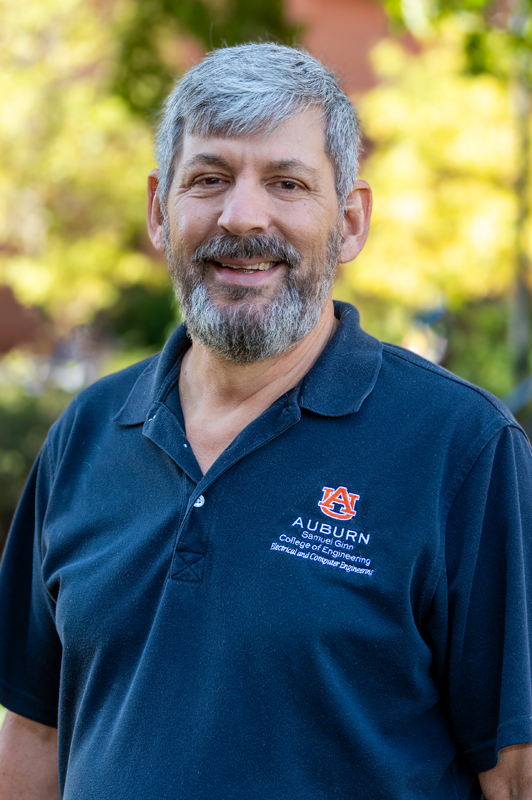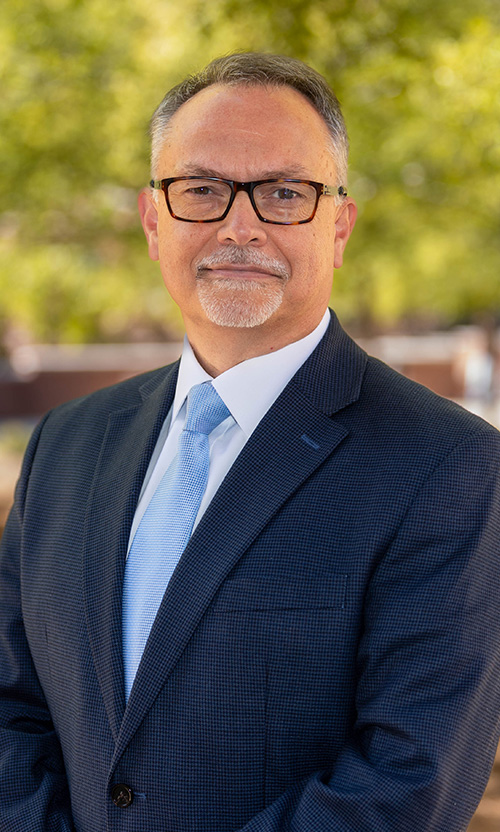International collaboration a key component to electrical and computer engineering students' senior project
Published: Apr 23, 2024 3:20 PM
By Joe McAdory
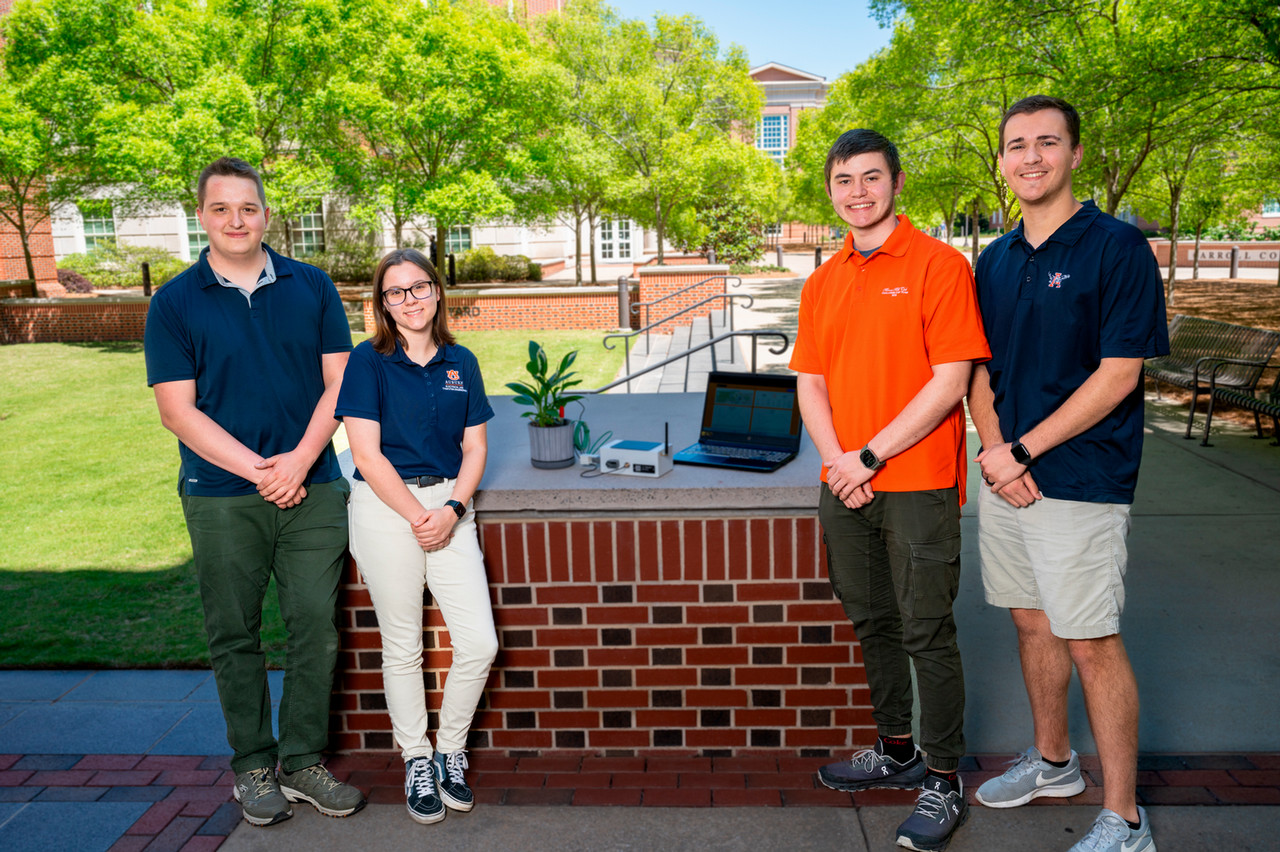
More than 42 million people worldwide suffer from an acute food shortage as food production struggles to keep pace with the rising global population.
In response, two seniors in electrical and computer engineering teamed with engineering students at Germany’s Technical University of Applied Sciences Würzburg-Schweinfurt to develop a system designed to foster farming sustainability.
Shaped like a box with a solar-paneled top, Katie Wolfe and Elijah Parker’s senior project, “The Distributed Network for Agricultural Monitoring,” uses sensors to monitor soil moisture, pH, air and plant temperatures – then transmits the data to farmers.
“One of the new, popular methods to help crops sustainably grow is automated farming – creating tools that assist farmers in managing their fields more efficiently. We’re trying to contribute to that, but on a scale that is attainable for the home gardener up to someone who has thousands of acres,” said Wolfe, an Auburn University Honors College student who is also majoring in theater and will graduate in May. “Farmers can use as many boxes as they need and transmit data to a personalized web site, then recognize trends or current statuses.”
It is the first senior project collaboration between Auburn electrical and computer engineering students and students overseas, according to Thaddeus Roppel, associate professor in electrical and computer engineering.
“The project is the culmination of several years of planning by administrators and faculty of both institutions,” Roppel said.
Technical University of Applied Sciences Würzburg-Schweinfurt’s Andreas Zeck and Felix Ress partnered with Parker and Wolfe for months via weekly Zoom calls and email exchanges. Collaboration became even more real when Parker and Wolfe visited the German campus March 4-17, meeting and working with Zeck and Ress in-person. In turn, Zeck and Ress visited Auburn University April 15-26, where they attended at Auburn baseball game, visited Six Flags over Georgia and toured Birmingham.
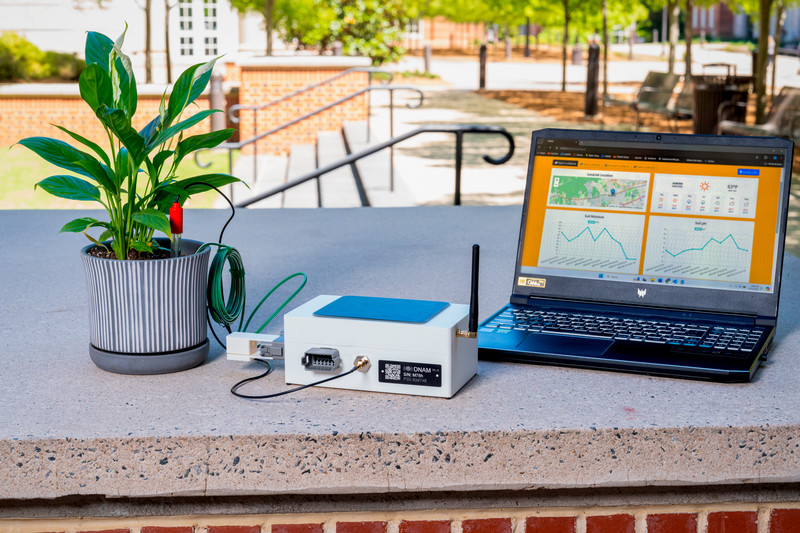
At Würzburg-Schweinfurt, the team had the opportunity to finally meet, test prototypes, implement power schemes and develop code for the web site.
“This is a great example of Auburn Engineering fulfilling a core mission to prepare students to practice engineering in a competitive global environment,” said Dean Hendrix, director, Global Programs for the college and associate computer science and software engineering department chair. “I am appreciative of Dr. Roppel and Elizabeth Gowan for the work they put in to provide this experience for Katie and Elijah and I encourage all engineering students to explore the many other opportunities to incorporate an international experience into their engineering education. Being able to work in a global environment is increasingly important for all our students.”
Parker, who will graduate in May and join Johns Hopkins University’s Applied Physics Lab in the fall, said “international collaboration is a great experience.”
“We had an opportunity to do a hands-on project with other engineers overseas and learned how to collaborate and divide tasks,” he said.
How were those tasks divided? Parker, who described the device as an “Internet of Things agricultural monitor,” handled the web site and sensor integration. Wolfe provided the power and hardware implementation. Zack developed the database and connection, while Ress designed the box and how all the parts fit together.
“We have a proto-typed circuit with several small modules on it,” Parker said. “We’ve written firmware to run on our microcontrollers. Andreas and Felix have also been working on the 3D-printed enclosure that will keep the electronics dry.”
Developing a high-tech device with team members across continents and time zones might have had challenges but was a necessary experience moving forward.
“It is a credit to the drive and flexibility of all four students that they were able to overcome significant challenges to complete their project successfully,” Roppel said. “They had to learn a great deal about each other’s cultures to collaborate. Basic elements such as school schedules, ordering processes and course expectations were quite different between the institutions. They learned some of each other’s colloquial expressions as well as some technical terms.”
Wolfe, who will continue her Auburn education in graduate school after working this summer as an imagineer at Disney, added that the need for international collaboration to solve issues on a worldwide scale remains high.
“When you’re trying to approach these big problems like food disparity, you must approach this from all parts of the world because it’s something that can affect us all,” she said. “Having the ability to communicate and work together internationally is paramount for going into industry because that’s what they do to solve problems. If you work only with a small subset, you’re losing the ability to see those diverse perspectives that add to the overall holistic perspective.”
The team will unveil the project with a full demonstration on Friday, April 26, at the electrical and computer engineering Capstone Showcase, held 2 to 4 p.m. in the ADTRAN Collaboration Space in Broun Hall.
Media Contact: , jem0040@auburn.edu, 334.844.3447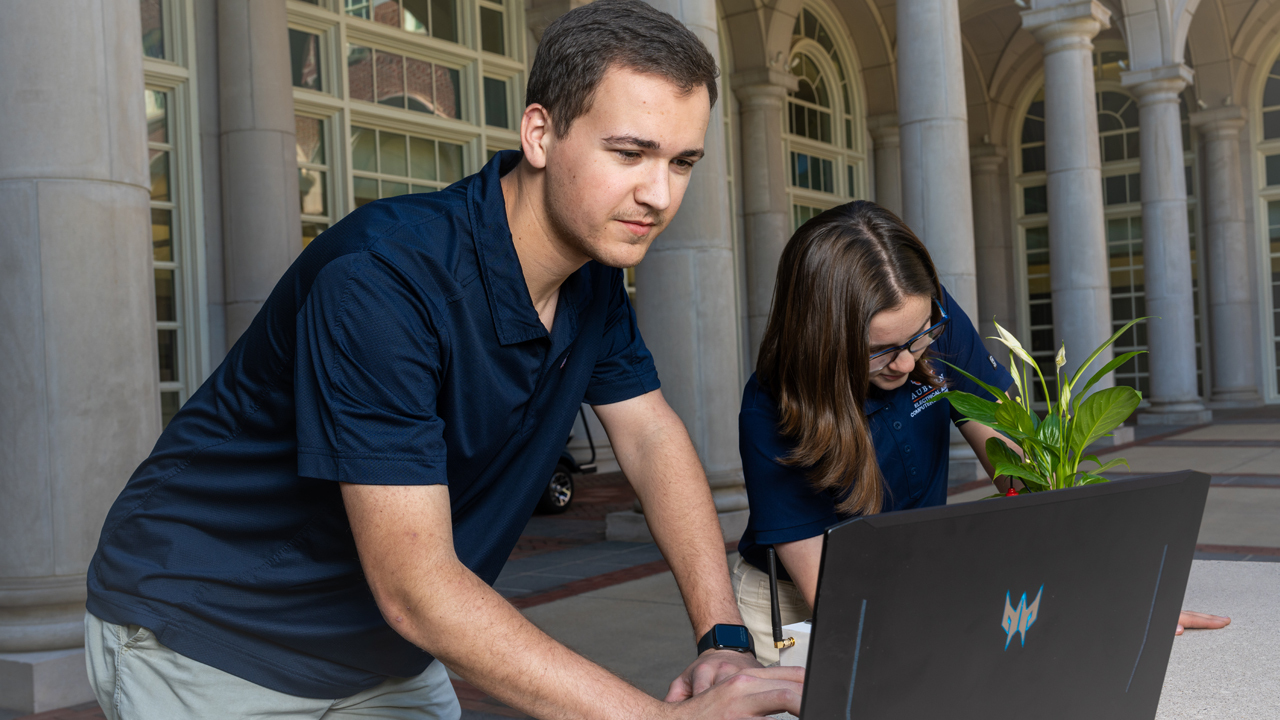
Elijah Parker and Katie Wolfe plug statistical data from the Distributed Network for Agricultural Monitoring (DNAM).


